ECO CHAMPER
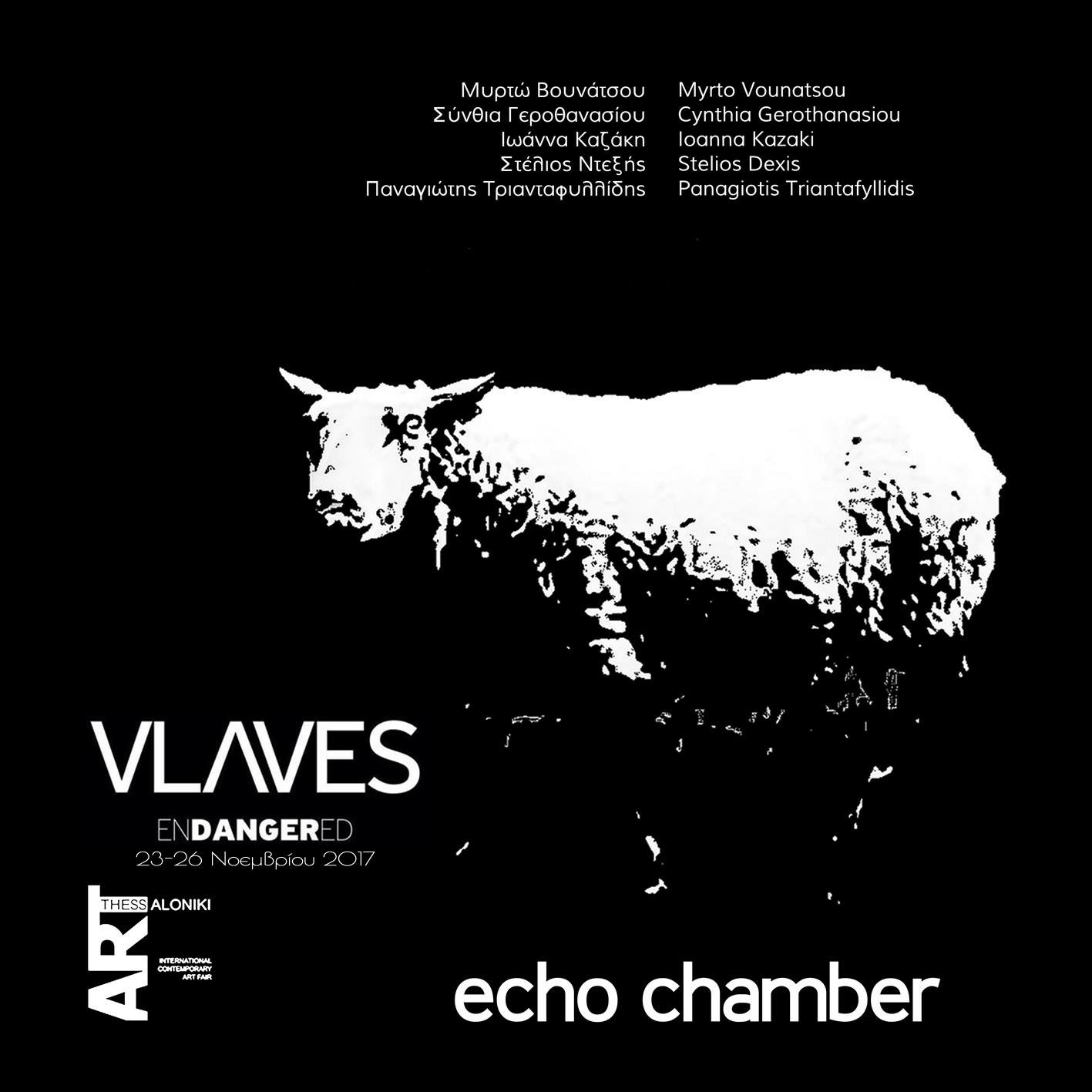
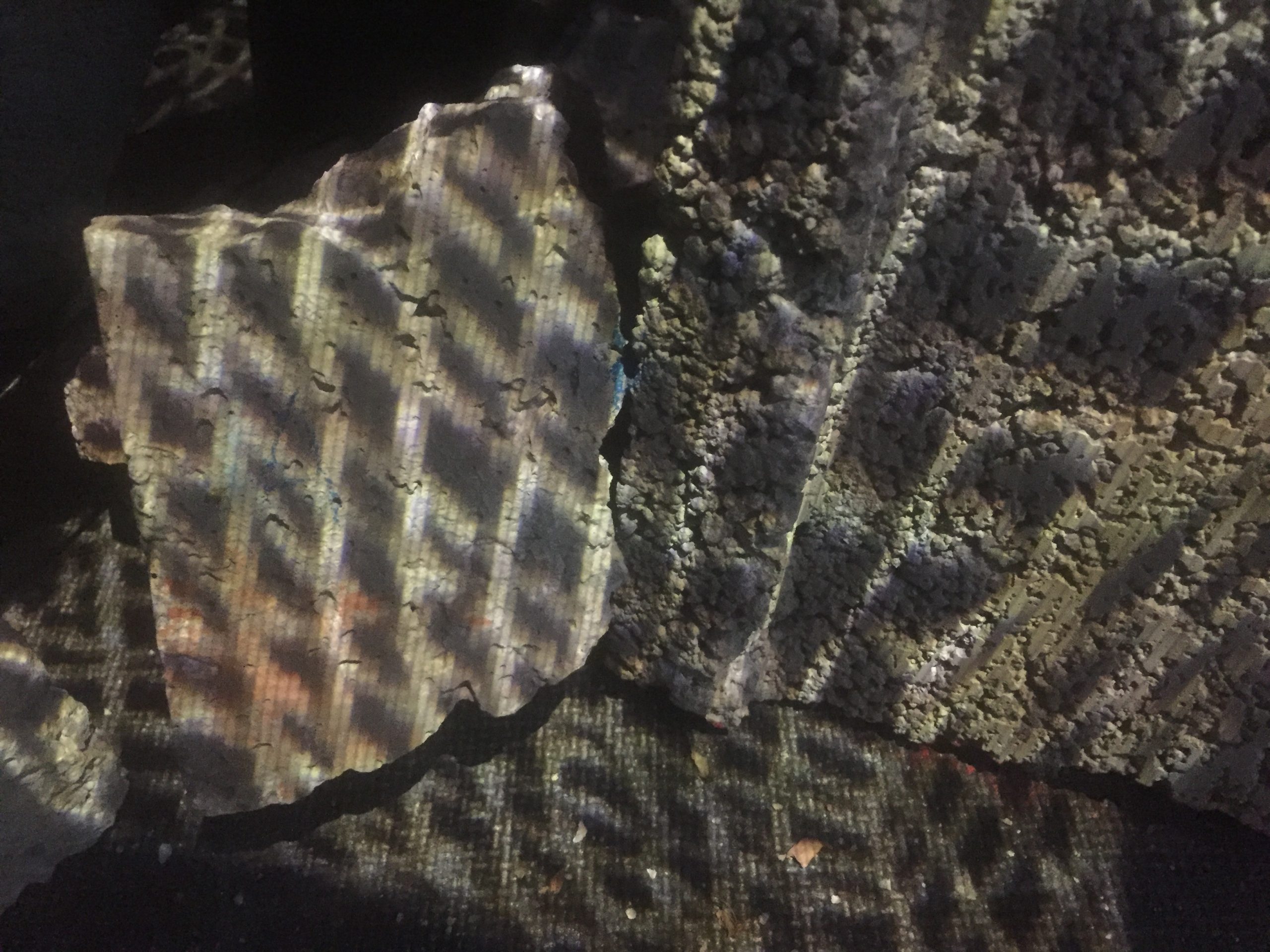

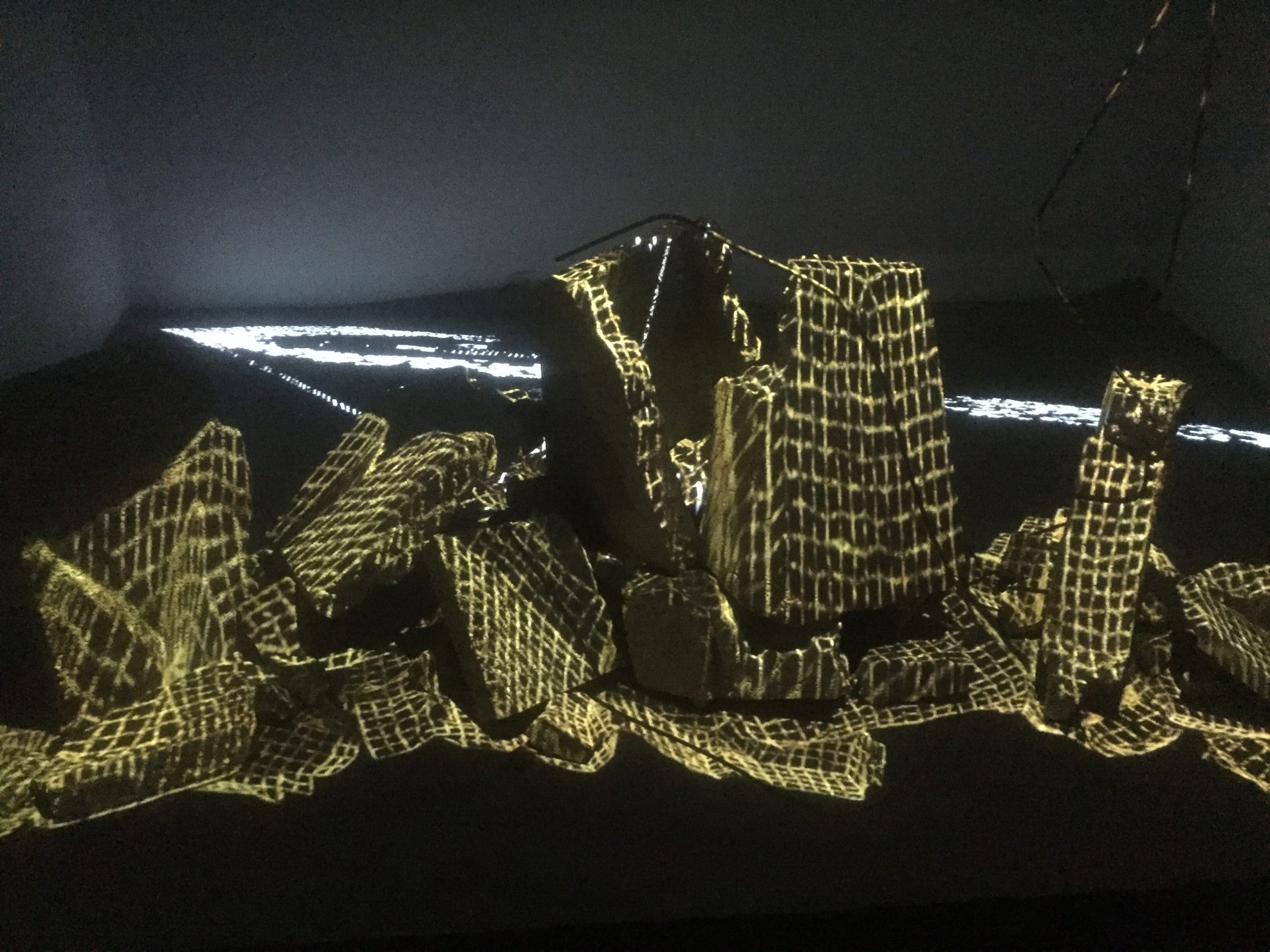
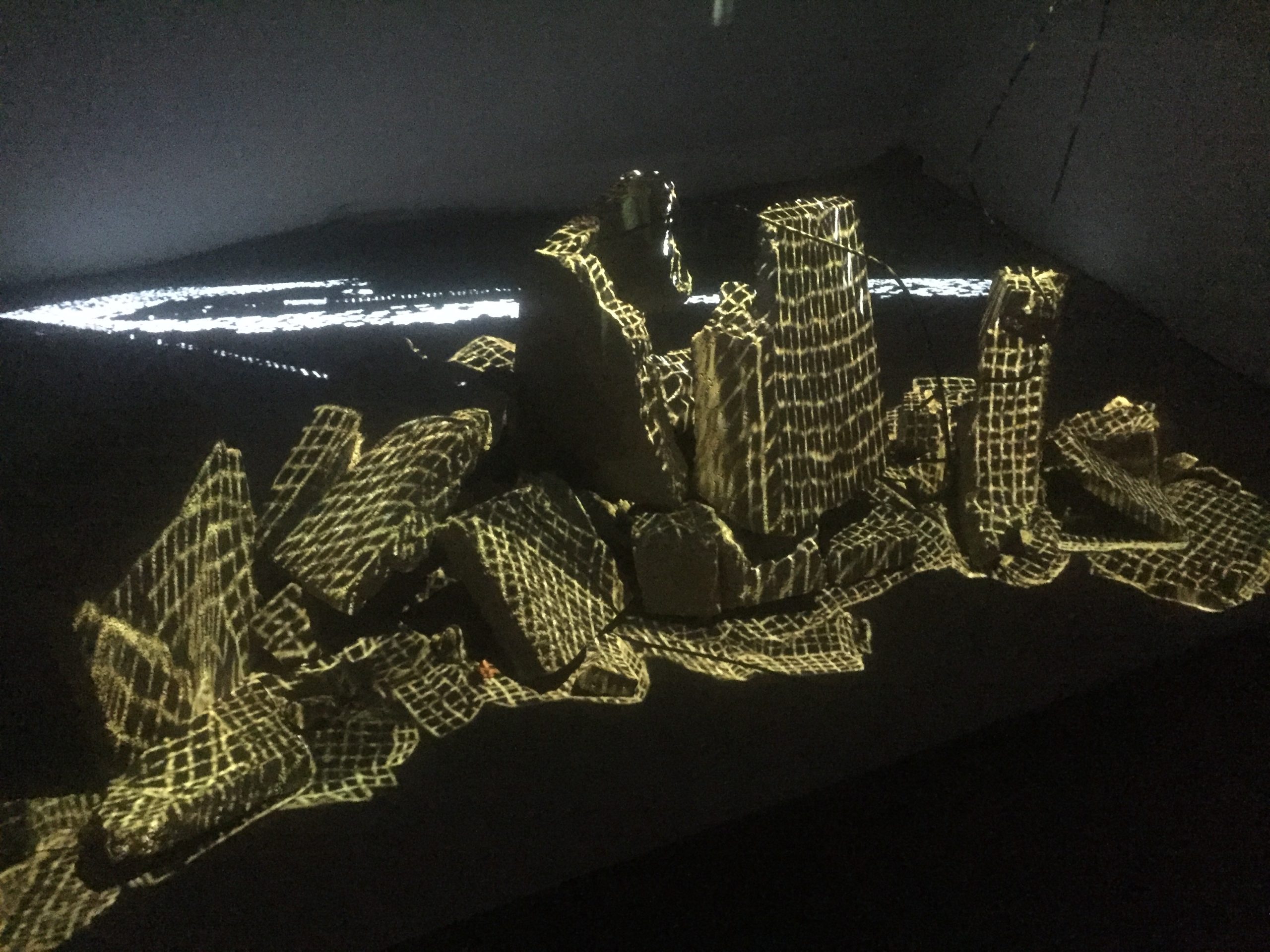
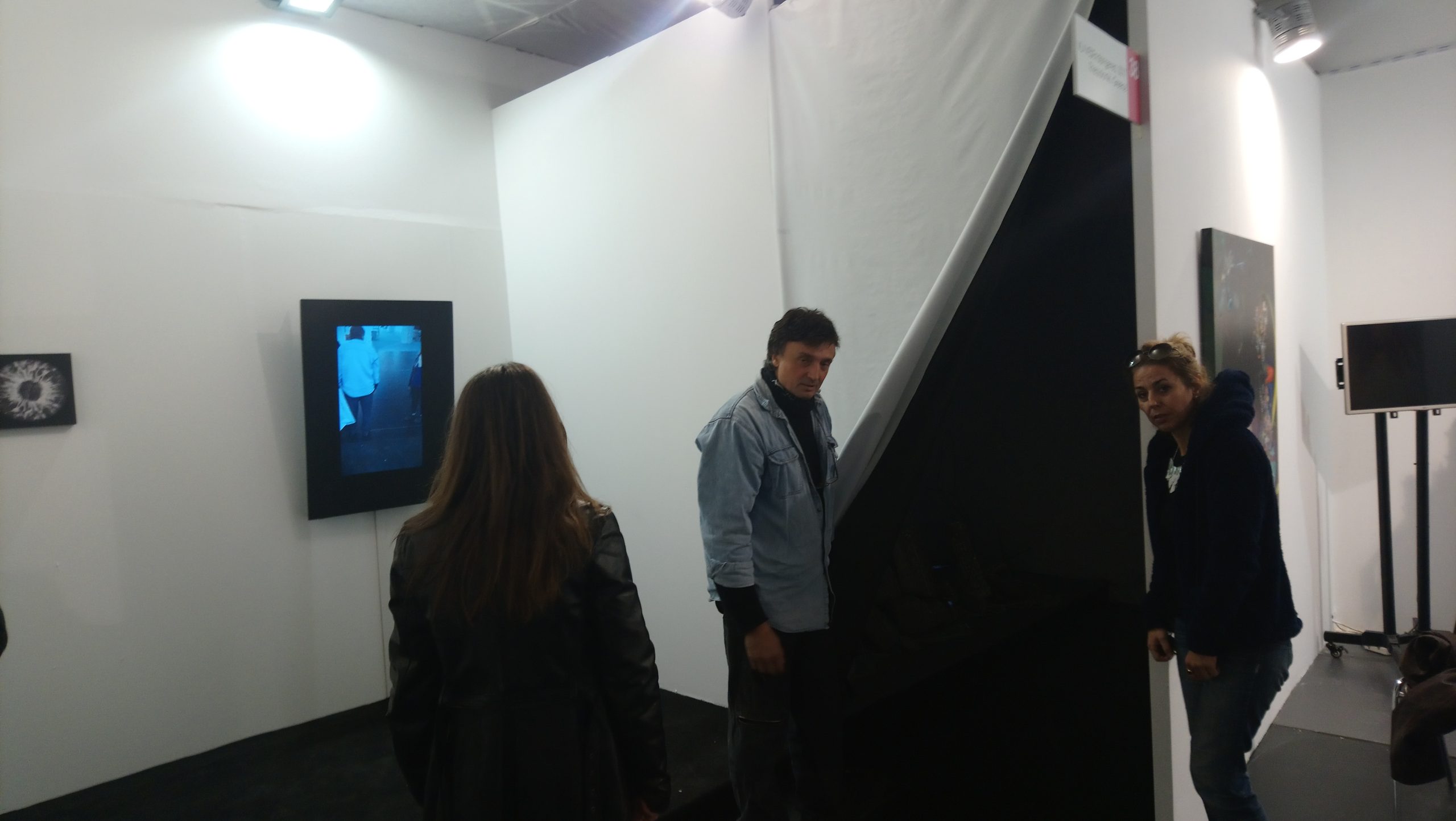
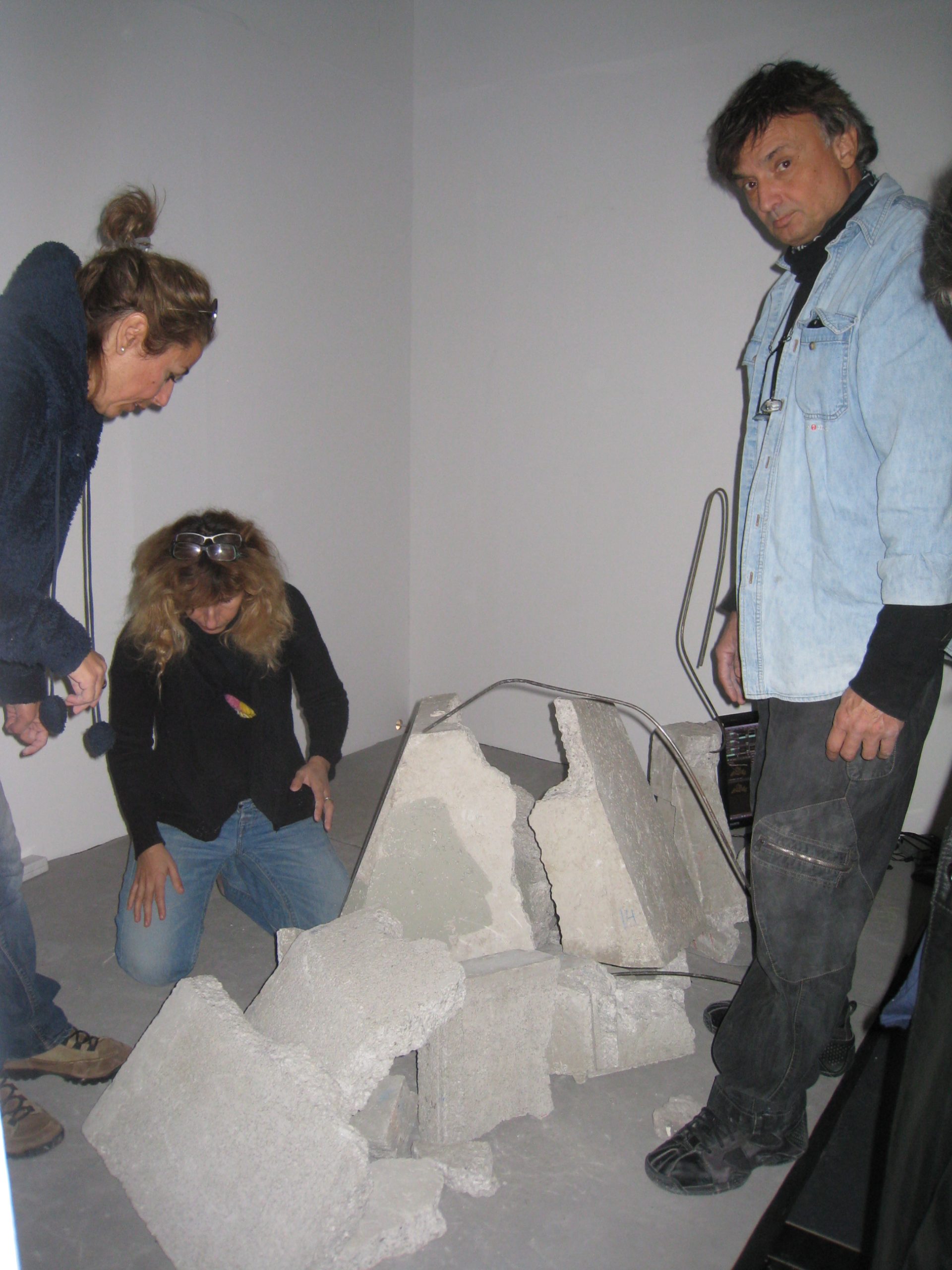
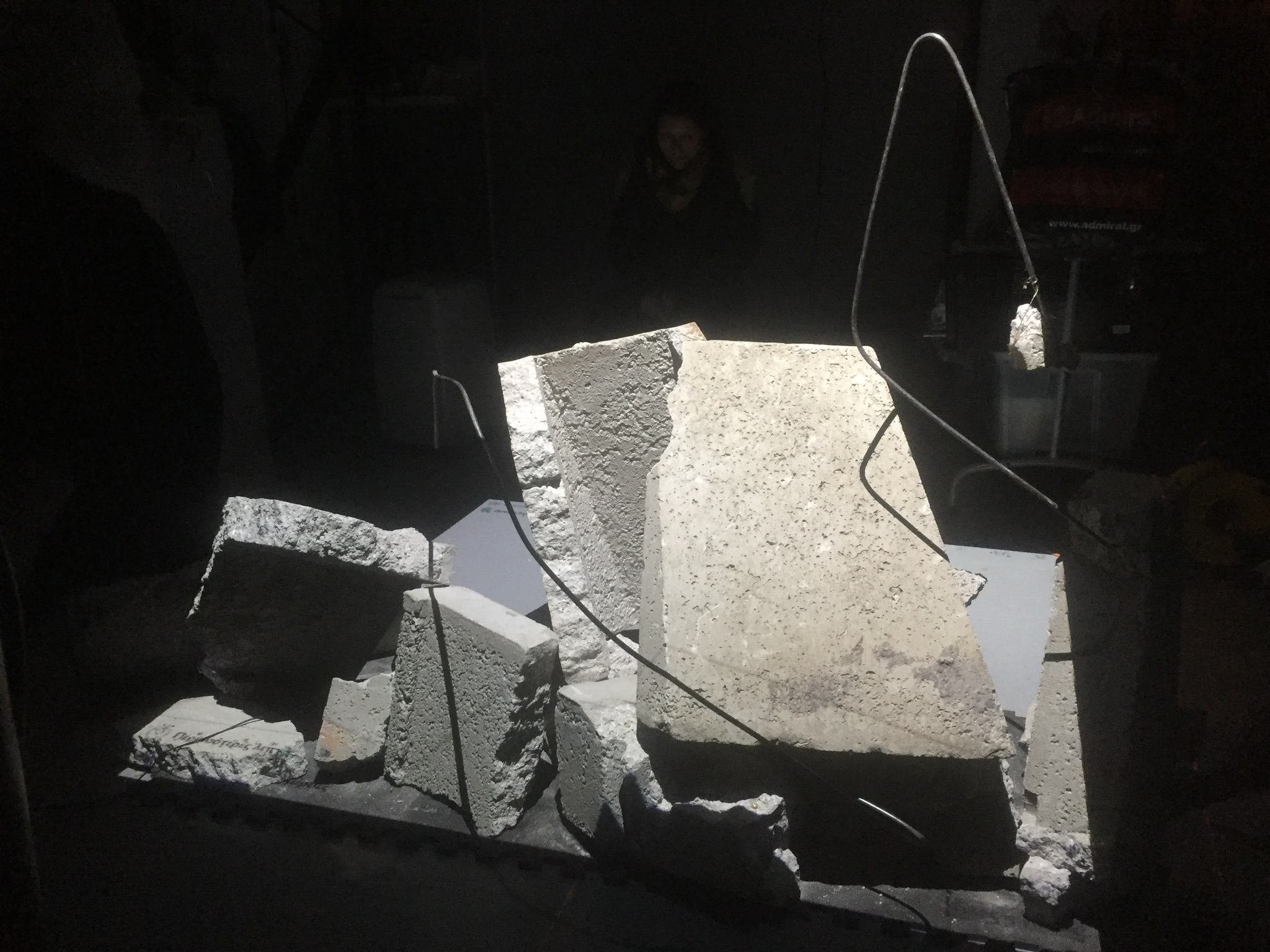
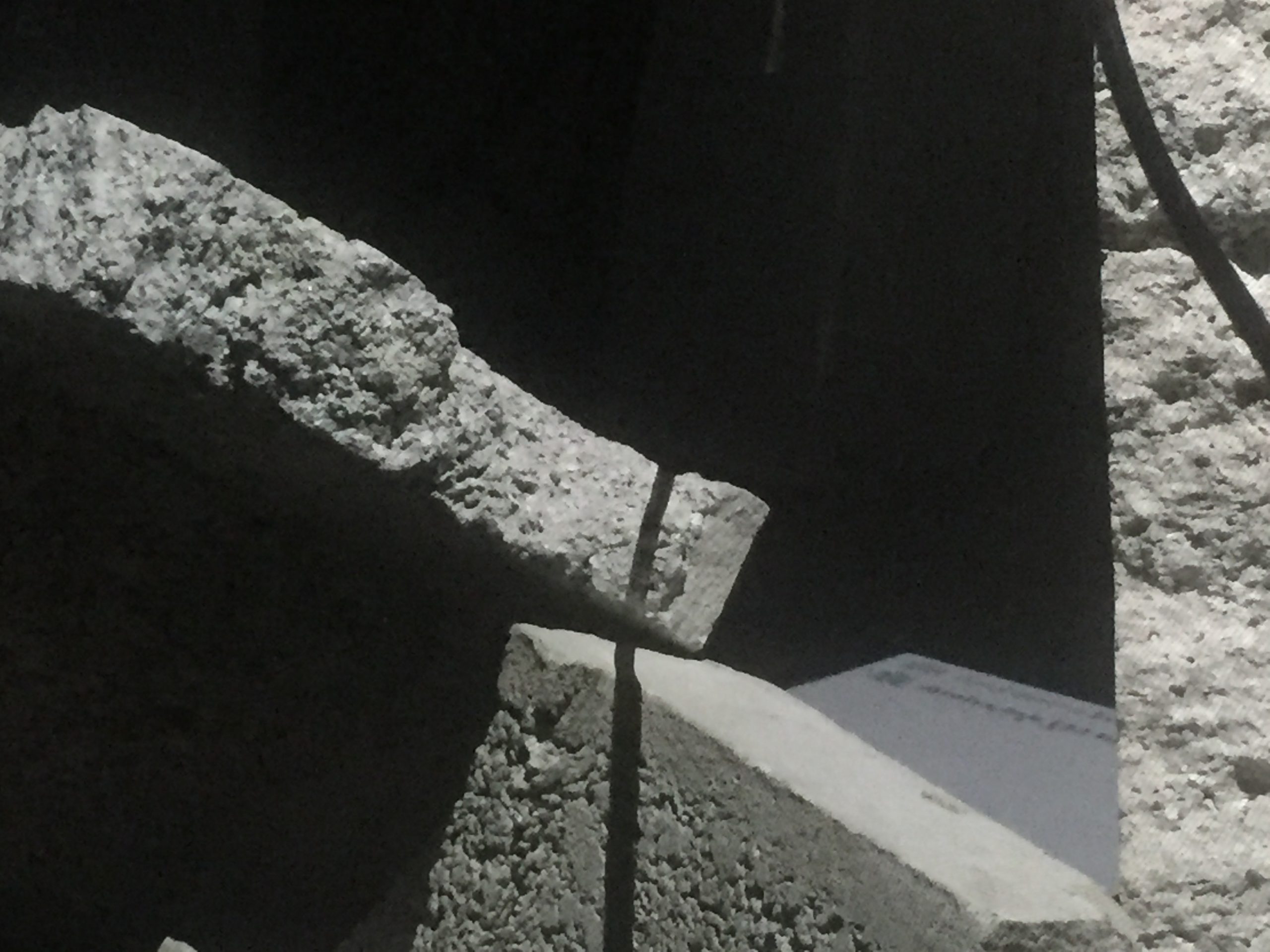
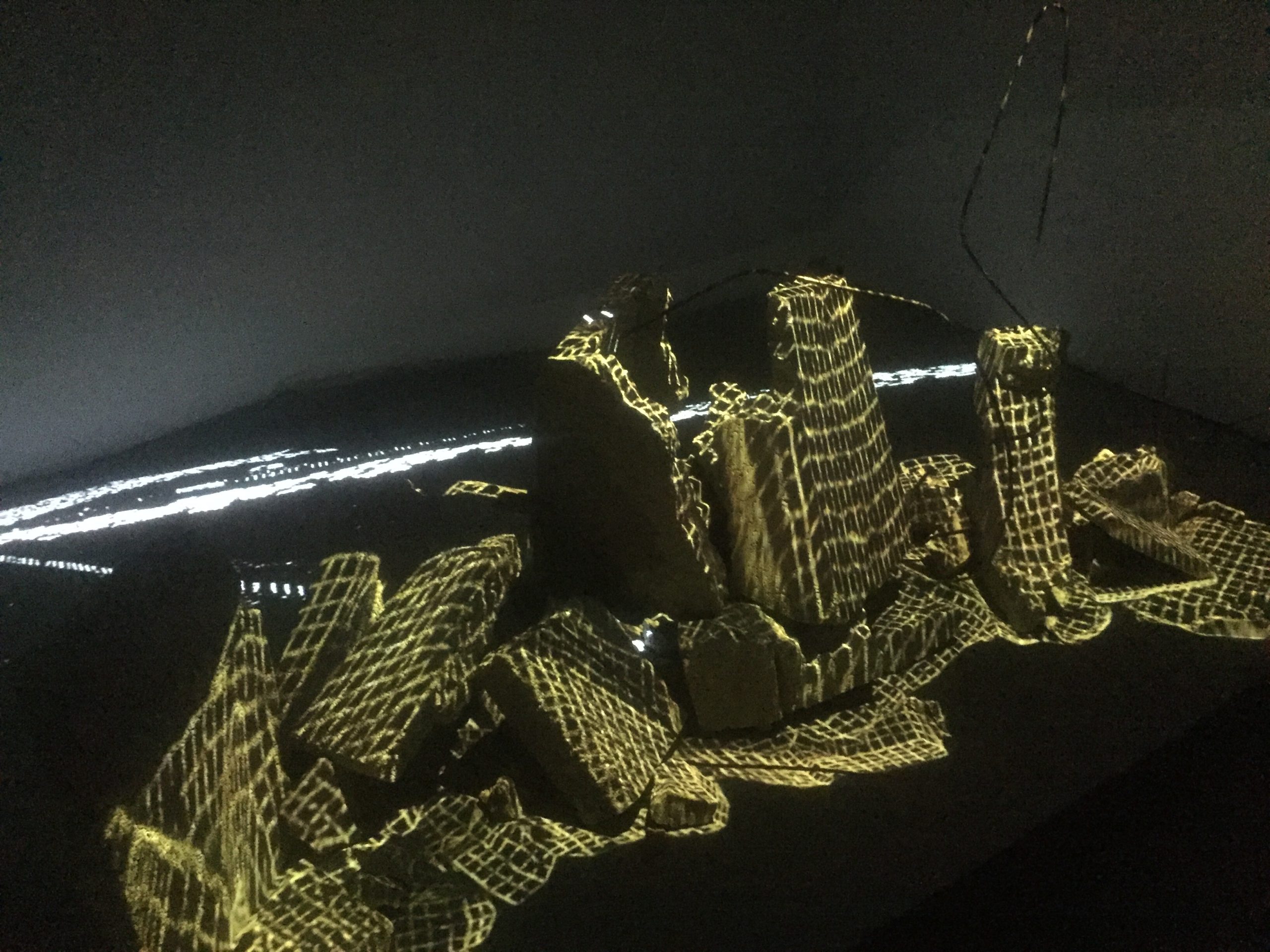










Βιντεο-ηχητική εγκατάσταση με τίτλο Echo Champer (2017)
Οι καλλιτέχνες Σύνθια Γεροθανασίου, Ιωάννα Καζάκη, Στέλιος Ντεξής, Μυρτώ Βουνάτσου και ο καλεσμένος της ομάδας Παναγιώτης Τριανταφυλλίδης μετατρέπουν ένα νοηματικά φορτισμένο υλικό, τα μπάζα, σε έναν αντιφατικό, αμφιλεγόμενο χώρο μεταξύ πραγματικότητας και ονείρου, αλήθειας, απατηλότητας, ψευδαίσθησης και παραπλάνησης…
23-26/11/2017 2η ART THESSALONIKI INTERNATIONAL CONTEMPORARY ART FAIR, ΔΕΘ HELEXPO Περίπτερο 38, Ελλάδα. Συμμετοχή με την Ομαδική Video Mapping Projection Installation- με τίτλο Eco Chamber, 2017 στο πλαίσιο του Project VLAVES-Εndangered II
Τα διαλυμένα ερείπια αποτελούν τα δομικά υλικά ενός πολυεπίπεδου γλυπτού, πάνω στο οποίο προβάλλεται αέναα η ανέμελη κίνηση μικρών προβάτων, ενώ ταυτόχρονα ακούγεται η μελωδία ενός παιδικού νανουρίσματος. Οι καλλιτέχνες αξιοποιούν τον συνδυασμό του παραδοσιακoύ συμβολισμού των στοιχείων του έργου τους με την εγγενή δυνατότητα της οπτικής και ηχητικής επαναληπτικότητας για «εγκοίμηση» και «ύπνωση» του θεατή, για να σχολιάσουν την πρακτική των συστημάτων εξουσίας να θέτουν τους πολίτες σε μια «παθητική» λειτουργία, δηλαδή αποφυγής οποιασδήποτε έννοιας διακινδύνευσης. Ο μιντιακός όρος echo chamber αναφέρεται στην συνθήκη εκείνη όπου κατασκευασμένες και χειραγωγημένες από την εξουσία πληροφορίες αναπαράγονται, ομογενοποιούνται, γίνονται αποδεκτές χωρίς κριτικό φιλτράρισμα και τελικά καθιερώνονται ως ορθές και παγκόσμιες με τη βοήθεια της «βομβαρδιστικής» επανάληψης τους από τα μέσα μαζικής επικοινωνίας. Ουσιαστικά το έργο πραγματεύεται την αντιφατικότητα «του διακινδυνεύειν» στην πλέον ρεαλιστική, σύγχρονη του εκδοχή, την εποχή που η αλήθεια και η αναλήθεια εναλλάσσονται αδιακρίτως από την εξουσία ανάλογα με τους σκοπούς της. Η φαινομενικά ασφαλής ή επισφαλής καθημερινότητα είναι σε τεράστιο βαθμό προϊόν της «επεξεργασίας» και του καθορισμού της συνείδησης των μαζών από τα συστήματα εξουσίας. Συνεπώς, η «διακινδύνευση» και η «μη διακινδύνευση» δεν ορίζονται από αντικειμενικά κριτήρια ή υγιείς συνειδήσεις, αλλά από το ποιός, πώς και γιατί έχει αναλάβει κάθε φορά το ρόλο του προστάτη της κοινωνίας. Η ιδέα ότι «η αναζήτηση της αλήθειας απαιτεί ρίσκο» δεν είναι φιλοσοφικής φύσης, αλλά θεμελιώδης αρχή της προστασίας των βασικών
Ιστορικός Τέχνης Βασσιλική Βαγενού.